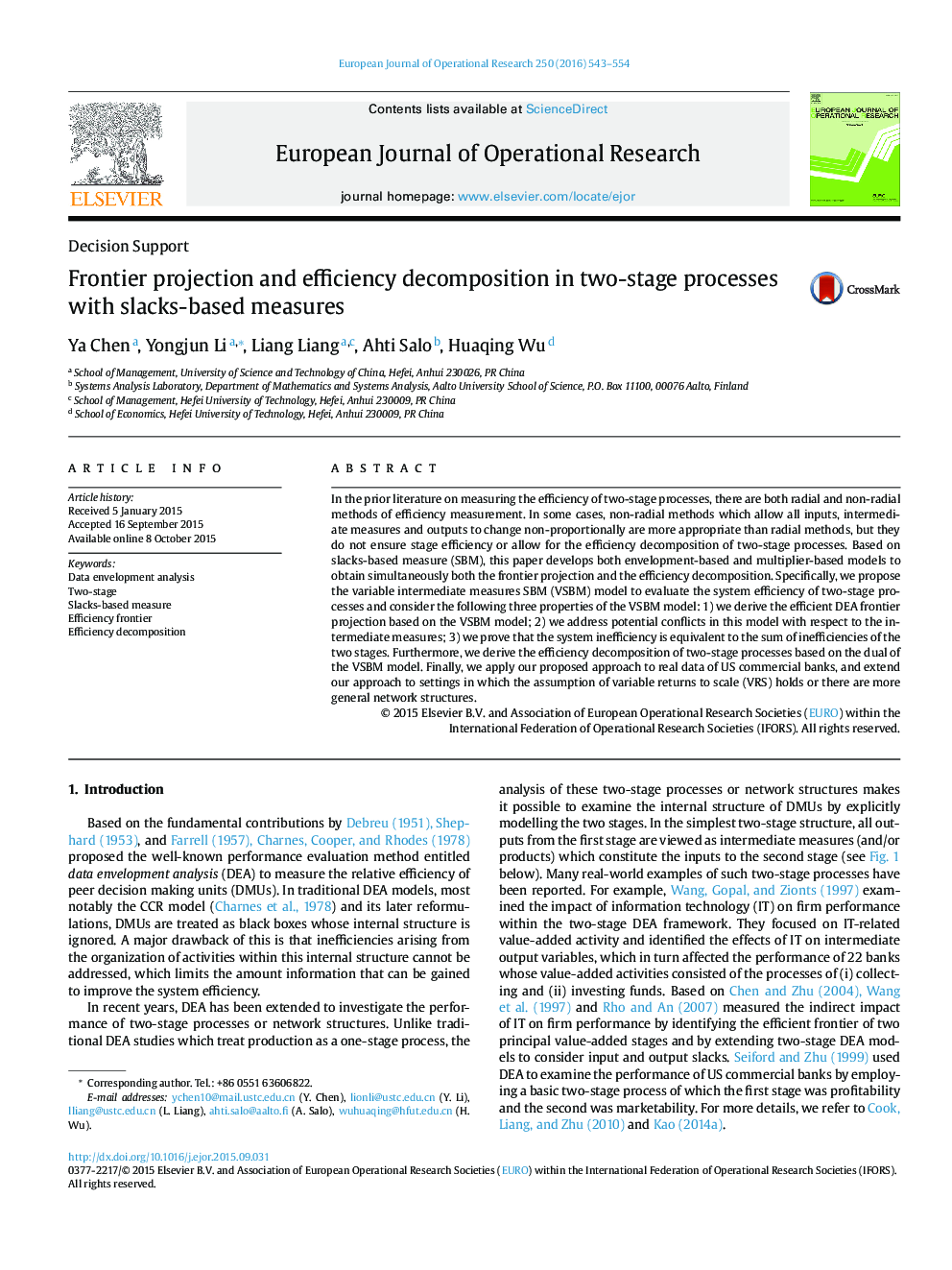| Article ID | Journal | Published Year | Pages | File Type |
|---|---|---|---|---|
| 479322 | European Journal of Operational Research | 2016 | 12 Pages |
•We propose the variable intermediate measures SBM model (VSBM) to evaluate the system efficiency of two-stage processes.•We derive the efficient DEA frontier projection based on the VSBM model.•We address the VSBM model on potential conflicts with respect to the intermediate measures.•The system inefficiency is equivalent to the sum of inefficiencies of the two stages.•We obtain efficiency decomposition of two-stage processes based on dual of the VSBM model.
In the prior literature on measuring the efficiency of two-stage processes, there are both radial and non-radial methods of efficiency measurement. In some cases, non-radial methods which allow all inputs, intermediate measures and outputs to change non-proportionally are more appropriate than radial methods, but they do not ensure stage efficiency or allow for the efficiency decomposition of two-stage processes. Based on slacks-based measure (SBM), this paper develops both envelopment-based and multiplier-based models to obtain simultaneously both the frontier projection and the efficiency decomposition. Specifically, we propose the variable intermediate measures SBM (VSBM) model to evaluate the system efficiency of two-stage processes and consider the following three properties of the VSBM model: 1) we derive the efficient DEA frontier projection based on the VSBM model; 2) we address potential conflicts in this model with respect to the intermediate measures; 3) we prove that the system inefficiency is equivalent to the sum of inefficiencies of the two stages. Furthermore, we derive the efficiency decomposition of two-stage processes based on the dual of the VSBM model. Finally, we apply our proposed approach to real data of US commercial banks, and extend our approach to settings in which the assumption of variable returns to scale (VRS) holds or there are more general network structures.
